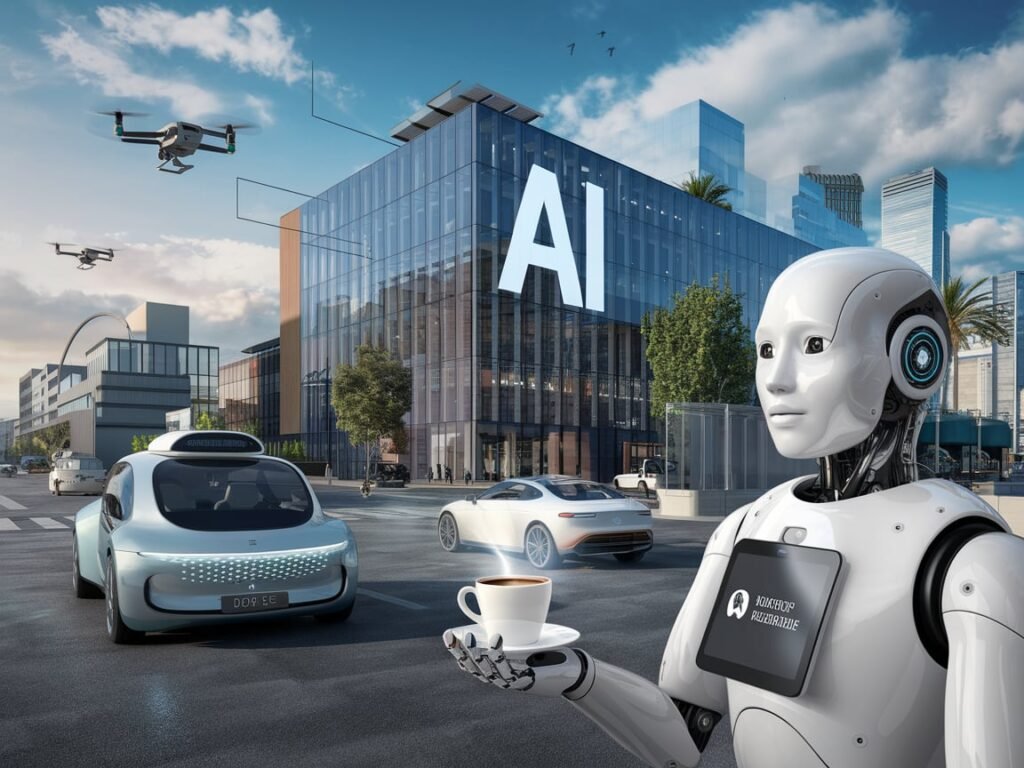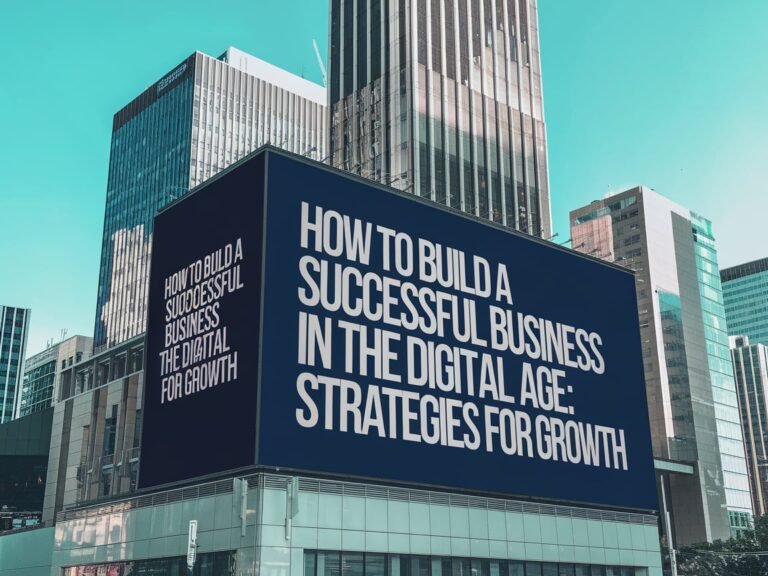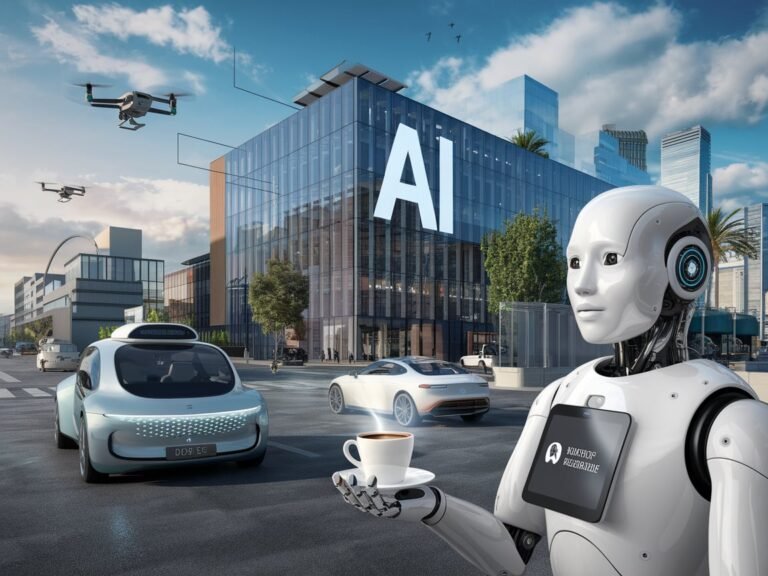
"Discover how AI is transforming industries, enhancing daily life, and shaping the future. From healthcare to smart homes, explore the top 10 ways Artificial Intelligence is revolutionizing our world!"
Artificial Intelligence (AI) has already begun reshaping industries, redefining human experiences, and revolutionizing the way we live, work, and interact with technology. As AI continues to advance, its potential to impact society on a global scale grows exponentially. In this article, we’ll explore the current state of AI, its applications across various sectors, and its future potential to change the world as we know it.
Table of Contents:
- Introduction to Artificial Intelligence (AI)
- Current Applications of AI in Everyday Life
- How AI is Transforming Industries
- The Future of AI in Healthcare
- AI in Education: Enhancing Learning Experiences
- Automation and AI in the Workplace
- Ethical Concerns: The Dark Side of AI
- The Role of AI in Smart Homes and IoT
- What Lies Ahead: Trends and Innovations in AI
- Conclusion
- FAQs
- Resources
1. Introduction to Artificial Intelligence (AI)
Artificial Intelligence, or AI, refers to the simulation of human intelligence by machines, particularly computer systems. These systems perform tasks typically requiring human intelligence, such as understanding natural language, recognizing images, and making decisions. AI has evolved significantly in recent years, moving from simple machine learning algorithms to more advanced forms of deep learning and natural language processing (NLP).
The potential of AI to transform every sector of society has never been more apparent, with breakthroughs occurring across healthcare, education, business, and more.
2. Current Applications of AI in Everyday Life
Artificial Intelligence is already a part of our daily lives in various forms, some of which we might not even notice. Here are a few examples of how AI is embedded into our routines:
- Personal Assistants and Smart Devices: AI-powered assistants like Siri, Alexa, and Google Assistant are commonplace in many homes. These voice-activated assistants use AI to process language and control everything from your calendar to home automation systems.
- Recommendation Systems: AI algorithms are behind the personalized content recommendations on platforms like Netflix, Amazon, and Spotify. These systems analyze user preferences to suggest products or media, improving the user experience and driving engagement.
- Healthcare and Diagnostics: In healthcare, AI tools are revolutionizing diagnostics. AI-powered systems can analyze medical data, like X-rays and MRIs, to detect abnormalities faster and with greater accuracy than traditional methods.
- Autonomous Vehicles: Self-driving cars, powered by AI, are rapidly evolving. These vehicles use AI to interpret data from sensors and cameras, navigating the roads and avoiding obstacles without human intervention.
3. How AI is Transforming Industries

Artificial Intelligence is not just changing everyday life; it’s reshaping entire industries. Here are some of the sectors being transformed by AI:
- Manufacturing and Automation: In manufacturing, AI-driven robots perform repetitive tasks more efficiently than humans. These intelligent machines improve productivity, reduce errors, and lower costs, marking a significant shift in industrial operations.
- Retail and E-Commerce: AI is revolutionizing customer service in retail through chatbots and virtual assistants, enhancing user experiences and optimizing supply chain management.
- Finance and Banking: In finance, AI is used to detect fraud, manage investments, and even offer personalized financial advice. Robo-advisors, powered by AI, are democratizing wealth management by providing cost-effective services to a broader audience.
- Telecommunications: AI tools help telecom companies optimize network performance, predict failures, and improve customer support through automated systems.
4. The Future of AI in Healthcare

The healthcare sector will be profoundly impacted by AI advancements. As AI continues to evolve, its ability to personalize and enhance medical care will become even more pronounced:
- AI-Powered Drug Discovery: AI algorithms are currently being used to predict which molecules may be effective in treating diseases, accelerating drug discovery and reducing development costs.
- Robotic Surgery: AI-driven robots assist surgeons in performing more precise, minimally invasive procedures, improving patient outcomes and reducing recovery time.
- Personalized Medicine: AI allows for the development of personalized treatment plans tailored to each patient’s genetic profile, medical history, and lifestyle.
5. AI in Education: Enhancing Learning Experiences

Artificial Intelligence is also playing a key role in transforming education. By personalizing learning and improving educational tools, AI is making learning more efficient and accessible.
- Adaptive Learning Systems: AI-based systems personalize learning experiences by adjusting content and assessments based on the learner’s progress and performance.
- AI Tutors and Assistants: Virtual AI tutors provide personalized assistance to students, offering support with assignments, explanations, and feedback.
- Automated Grading: AI systems automate grading tasks, saving educators valuable time and allowing them to focus more on student engagement.
6. Automation and AI in the Workplace
AI and automation are redefining the workplace, enabling organizations to boost productivity and streamline operations. However, AI also raises concerns about job displacement.
- AI in Human Resources: In HR, AI tools help streamline recruitment processes, analyze resumes, and conduct preliminary interviews, making hiring faster and more efficient.
- Smart Offices: AI systems are transforming office environments, from smart lighting to AI-powered meeting assistants that help schedule meetings and summarize discussions.
- AI and Collaboration Tools: In collaboration, AI is helping teams stay organized by automatically categorizing documents and flagging important communications.
7. Ethical Concerns: The Dark Side of AI

As AI becomes more integrated into daily life, it raises important ethical questions:
- Privacy Issues: AI systems require vast amounts of personal data, raising concerns about surveillance and privacy violations.
- Bias and Discrimination: If AI models are trained on biased data, they can perpetuate harmful stereotypes and biases, affecting decisions in hiring, lending, and law enforcement.
- Job Displacement: While AI can create new opportunities, it can also lead to job losses, particularly in fields like manufacturing, retail, and customer service.
8. The Role of AI in Smart Homes and IoT
Artificial Intelligence is increasingly embedded in the Internet of Things (IoT), creating smarter, more efficient homes:
- Home Automation: AI-powered devices can learn household routines, adjusting things like lighting and temperature automatically.
- Voice-Controlled Devices: Devices like Amazon Echo and Google Home rely on AI to perform voice-activated tasks, making life more convenient.
- Predictive Maintenance: AI is also used in home appliances to predict maintenance needs before problems arise, extending the lifespan of devices.
9. What Lies Ahead: Trends and Innovations in AI

The future of AI promises to be even more exciting, with developments on the horizon:
- Quantum Computing: Quantum computers could exponentially increase AI capabilities, solving problems that current systems cannot, including those in healthcare and climate modeling.
- AI in Creativity: AI is also making strides in creative industries, producing art, music, and literature that rival human creativity.
- Human-AI Collaboration: Rather than replacing humans, AI will enhance human decision-making, allowing for more efficient problem-solving and innovation.
10. Conclusion
Artificial Intelligence is already transforming various industries and aspects of our daily lives. As AI technology continues to evolve, its potential to solve global challenges, improve quality of life, and redefine the future of work will only increase. However, these advancements also bring challenges, such as ethical concerns and job displacement, which must be addressed to ensure a balanced, fair future.
11. FAQs
1. How will AI impact my job?
AI has the potential to automate certain tasks, but it also opens up opportunities for new roles in fields like AI development, data science, and machine learning. Upskilling and adapting to new technologies will be crucial.
2. Is AI dangerous?
While AI offers significant benefits, it also raises ethical concerns like privacy violations, job displacement, and bias. Careful regulation and ethical guidelines will be necessary to mitigate these risks.
3. Will AI replace humans?
AI is designed to augment human capabilities, not replace them. Many industries will see a collaboration between humans and AI, where humans provide creativity, empathy, and complex problem-solving skills, while AI handles repetitive tasks.
4. What industries will benefit most from AI?
Industries like healthcare, finance, manufacturing, retail, and transportation are already seeing the benefits of AI, with advancements in automation, data analysis, and personalized services.
12. Resources
For further reading on Artificial Intelligence, here are some trusted resources:
These resources provide cutting-edge insights into the latest developments and research in AI.




